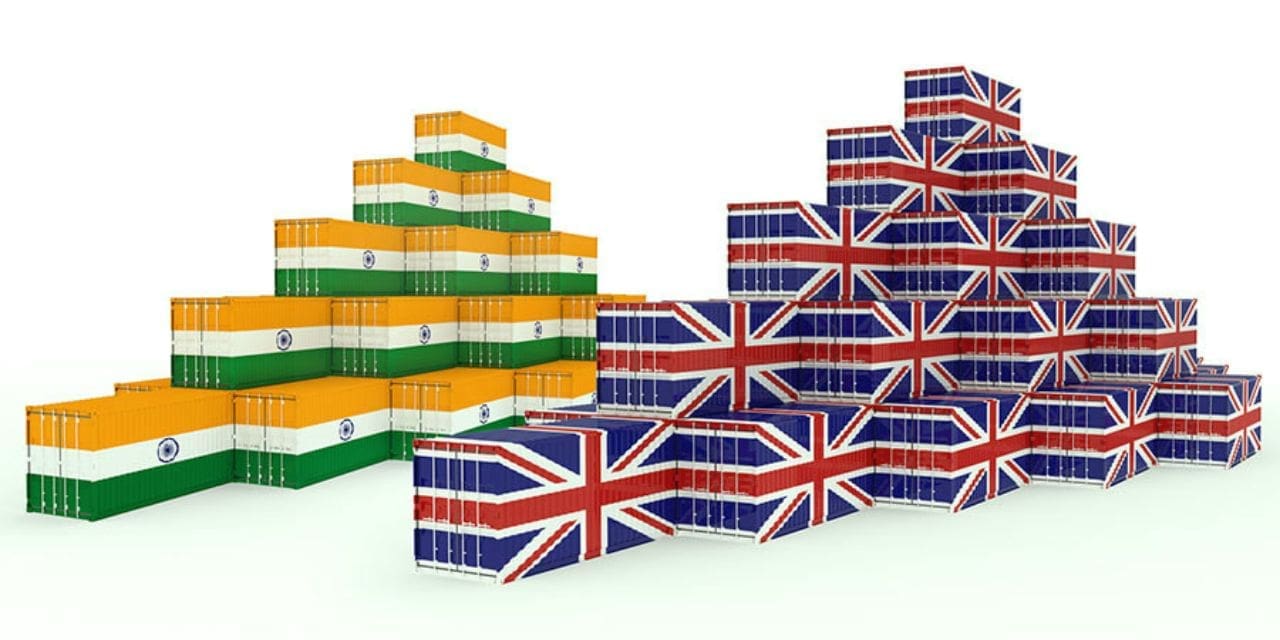The Free Trade Agreement (FTA) between India and the UK is eagerly anticipated by the textile industry in that country. Once there is duty-free access to the sizable garment market, the sector anticipates that it will be better able to compete with neighbouring Bangladesh. India and the UK have both stated that they are aiming to bring the FTA negotiations to a swift conclusion.
Following a break of more than four months, the sixth round of FTA negotiations between the UK and India were held last month with the participation of Piyush Goyal, the Indian minister of business and industry. They gave their negotiators specific instructions to avoid broaching touchy subjects in favour of resolving disagreements and moving on.
The UK is a sizable market, and the Indian textile industry will enjoy duty-free access to the significant market thanks to the planned trade agreement. According to Sanjay Jain, managing director of TT Limited and former chairman of the Confederation of Indian Textile Industries (CITI), it will give the industry a much-needed boost. In the first half of 2023, he anticipates that the trade agreement will be inked.
The Indian business community anticipates that the FTA would level the playing field with Bangladesh, which enjoys duty-free access to the UK as a result of special treatment due to its Least Developed Country (LDC) designation. Currently, the UK charges a 10% tariff on Indian clothing exports.
During a recent session of the CII’s Texcon conference in New Delhi, managing partner of Deiveegam Dyers K Vel Krishna stated, “The proposed FTA with the UK is expected to be landmark development as it can provide better advantage to Indian exporters. They will be able to provide buyers in the UK with competitive prices. They would have same duty-free access to the market as exporters from Bangladesh.”
“FTAs are crucial commercial agreements between trading nations in this period of the global market,” according to Raja M. Shanmugham, the former president of the Tiruppur Exporters’ Association (TEA). “The proposed trade agreement with the UK is significant since it will expand access to a sizable consumer market. Following that, a similar trade agreement with Europe would be made.” He asserted that a prompt conclusion of FTA discussions with all potential trading partners will benefit the Indian economy as well.
According to K Selvaraju, general secretary of the South Indian Mills Association (SIMA), “the proposed trade agreement with the UK is anticipated to open access to a significant market. Indian exporters would be able to export there duty-free, which will enhance the country’s textile industry and, more specifically, the garment industry. However, the security of raw materials must be ensured by the Indian government. The current price differential between Indian and ICE cotton is crippling Indian exporters’ ability to compete.”
According to trade data, Bangladesh is the second-largest supplier of clothing to the UK, while India is the fifth. Bangladesh supplied $3.019 billion worth of clothing, or 14.45% of the UK’s total apparel imports. China held a 21.57 percent share. Turkey and Italy both had market shares in 2021 that were higher than India’s 5.24 percent ($1.094 billion). India can anticipate seeing an increase in its market share in the UK once the FTA is in place.

